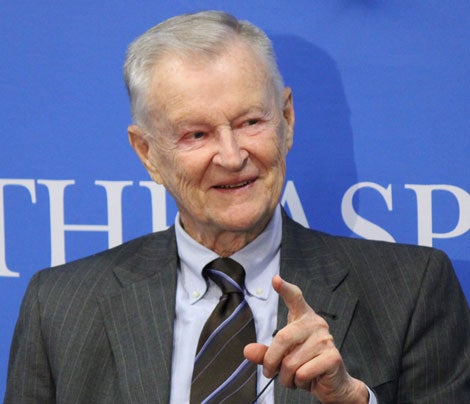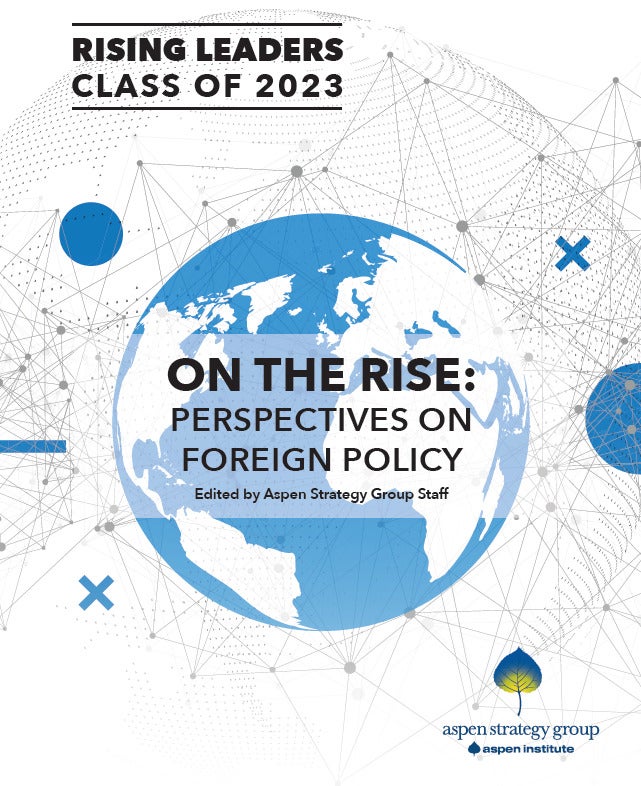On March 20, Zbigniew Brzezinski, former National Security Advisor and author of the recently released Strategic Vision: America and the Crisis of Global Power, came to the Institute’s Washington Ideas Roundtable Series to offer his seasoned perspective on Iran, China, Israel, oil prices, and how the world has changed since the days of global hegemons. Although the discussion was steeped in history, it was firmly forward-looking, with Brzezinski offering diagnoses and prescriptions to keep America a power player in global affairs.

A few of his most timely points:
The Decline of the Hegemon
From the time of the Peloponnesian War, Brzezinski said, international relations have been dominated by the quest for hegemony. At the end of the Cold War, the United States emerged as the unquestioned global power, and a “sense of self-gratification and pride and greed came to dominate American society”. But in the years since, political awakenings from Central Europe to the Middle East created an environment in which US influence has waned. “The standard is being set now by the French revolution, which was popular, rather than the American revolution, which was aristocratic,” he said.
China
Brzezinski brushed off the notion that China would replace the United States as a hegemon, saying that China lacked the doctrine and outreach to appeal to a broad swath of the world. The secret of the old American appeal, he said, was the genuine appeal of its system of government and society. He advocated for a model of managing China and Asia based on the British Empire’s management in the 19th century— by mediating between China and its neighbors, including Japan and India.
Afghanistan
Although the United States had no alternative but to retaliate for September 11th with an attack on Afghanistan, trying to turn it into a democratic state is chasing a chimera, Brzezinski said. He advocated for an expeditious yet thoughtful withdrawal including continuing efforts to bring the Taliban and Karzai government into negotiations.
Iran
On the thorny issue of Iran, Brzezinski stressed the wisdom in not preemptively attacking a nuclear Russia during the Cold War, and said threat of a nuclear Iran now was far lower than it had been with Russia, as Iran is not even in the process of developing nuclear weapons. If Iran were to develop weapons, it would not be particularly easy to funnel them to nefarious groups. “Nuclear weapons are like little babies,” he said. “If you’re not an expert, they will become unreliable and not work, or blow up in your face.” A rogue nuclear state is not intrinsically unacceptable, he said, as illustrated by Japan and South Korea’s lack of war fever over North Korea’s nuclear capabilities. He dubbed saber rattling over preemptive strikes on Iran nuclear facilities “the Netanyahu tax,” as the price of oil transport rises with every bellicose statement.
Educating the Public on Foreign Policy
“Our foreign policy can only be as intelligent as our public’s capacity to understand it,” Brzezinski said. This capacity is currently quite low, he says, with schools bereft of geography classes, citizens who don’t read “good newspapers”, and a media focused on sensation and society over substance. He prescribes greater use of the presidential bully pulpit by President Obama, and bemoans that the president’s most serious foreign policy speeches have taken place in Cairo, Berlin, Prague, and Istanbul. To maintain prominence in global affairs, marshaling public support for intelligent foreign policy is far more important than any structural reform within the government itself.

